|
|
|
| Research & EXT. Activities | Research & EXT. Sites | Types of Research Activities | Crop Varieties Release | Extension Activities |
Research and Extension activities run at Alemaya Agricultural Research Center (ALARC) currently focus on Crops, Livestock, Dryland Agriculture & Agrometreology, Forest and Forest Products, Fisheries and Aquatic Resources, Socio-economics, and Agricultural Mechanization as major areas. Accordingly, twenty programs are organized and registered since 1998 under the new research management body, the Ethiopian Agricultural Research Organization (EARO). The programs are given below:
|
 |
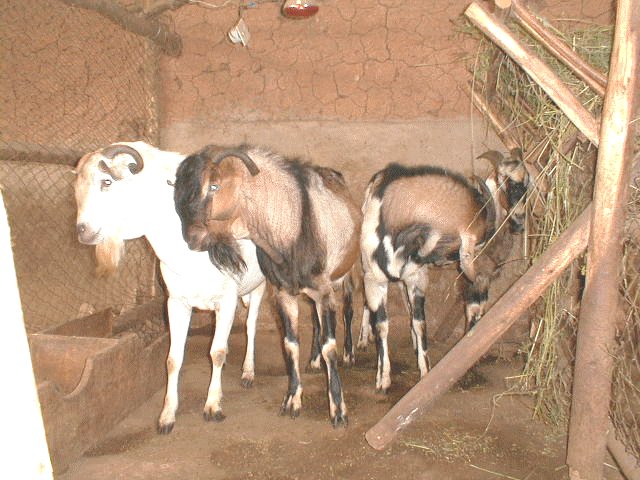 |
|
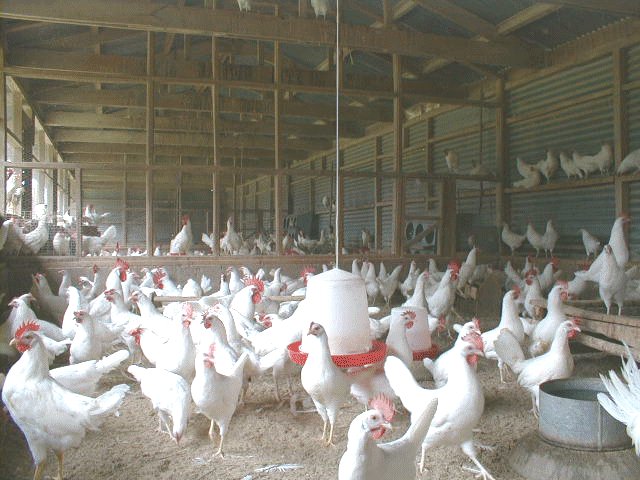 |
|
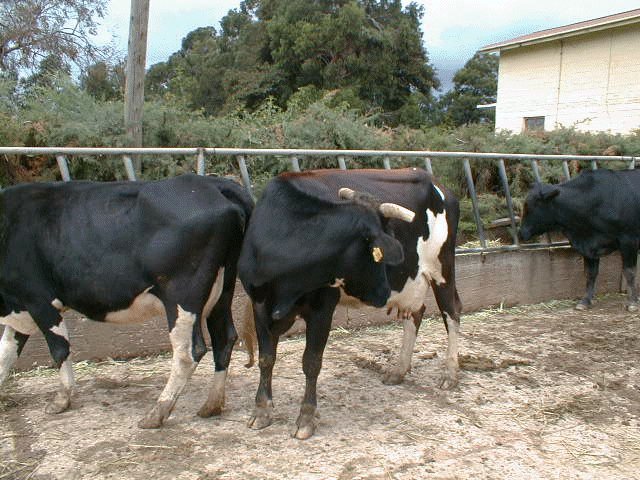 |
ALARC undertakes its research and extension activities in some fourteen sites. The Extension activities are undertaken mainly on farmers’ fields and by employing participatory methods whereas the research activities are undertaken on both on-station and under on-farm conditions. These activities were established in view of representing the different agroecologies of the Eastern Highlands, and the associated low and mid-altitude areas.
Six major types of research are undertaken. These are Exploratory, Adaptive, Applied, Component Technology, Strategic, and Basic Research.
| In the crop research programs activities such as breeding, agronomy, weed management, crop protection and socioeconomic studies are emphasized. Developing drought tolerant, low nitrogen tolerant, and disease and pest resistant crop varieties are currently coming to the fore. Farm mechanization, dry land farming and soil and water management research programs, as their name implies, focus on developing techniques and methods which permit efficient soil and water utilization, overcome erosion hazards and the use of low-input technologies for soil fertility maintenance. | 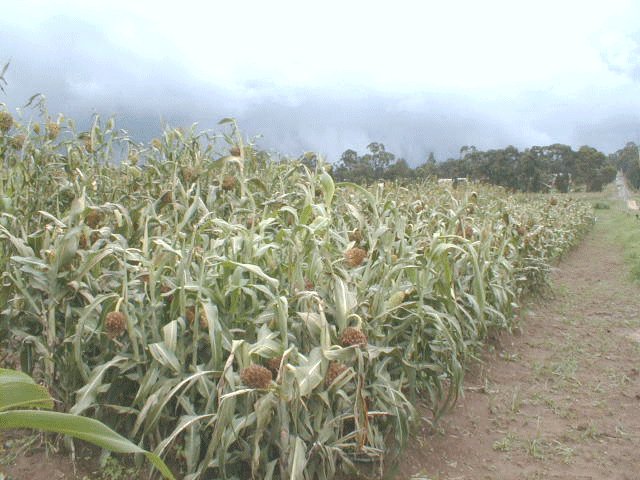 |
Forestry research deals with developing technologies, which promote replantation of the severely denuded Eastern Highlands. Livestock research is currently working towards developing appropriate feed combinations from available resources forage development technologies and breeding of exotic and local herds to develop breeds which produce acceptable yield (milk, meat) and reproduce better under the prevailing sub-optimal management practices at farmers level. |
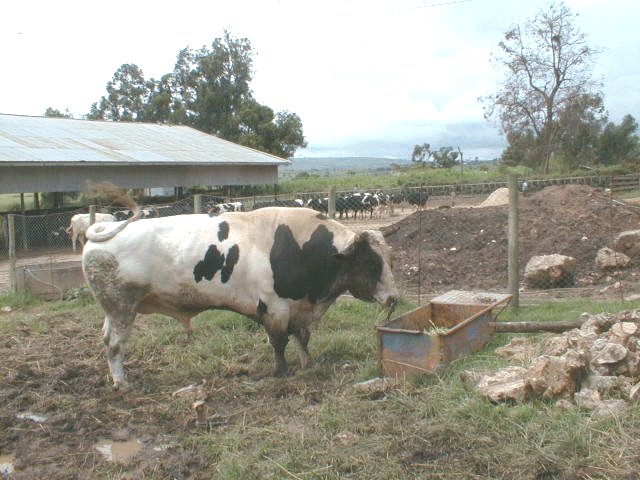 |
||
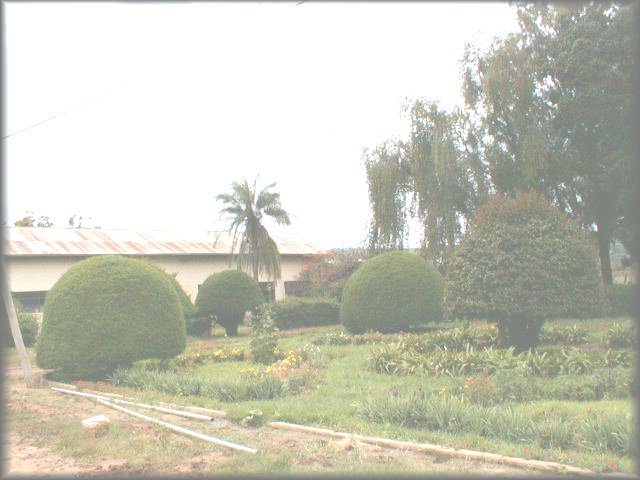 |
CROP VARIETIES SO FAR RELEASED AND THEIR SPECIFIC CHARACTERISTICS
ALARC, through its various crop research programs, has developed and released several crop varieties. Some of the released crop varieties are out of production due to the development of other better varieties at later dates. In the following only those crop varieties which are in the production process are provided.
| Sorghum: To date, seventeen varieties have been developed and released. These include nine varieties for the highland zone (only six currently in production), three for the mid-altitude areas (only two in production) and five for the lowland zone (only four in production). In November, 1999, two promising sorghum varieties are evaluated by the National Variety Releasing Committee for highland areas of Eastern Hararghe. | 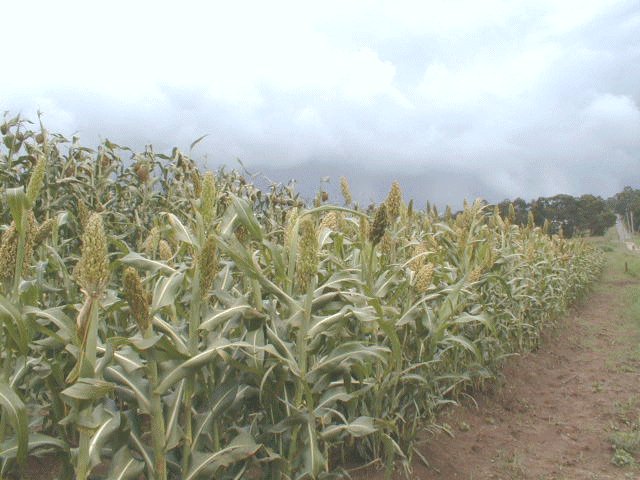 |
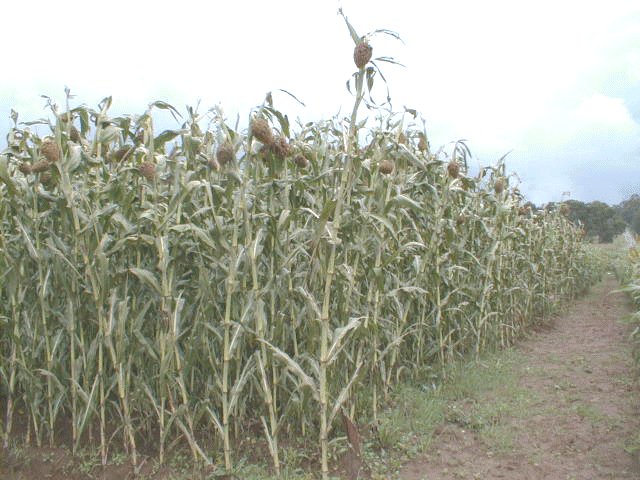 |
Maize: The maize improvement program at ALARC has developed and released about twenty-three maize varieties. Most of these varieties are in production whereas some are out of production due, either to, appearance and release of better performing varieties or increased susceptibility to crop diseases through time. |
| Haricot
Bean: In its recent history of research in haricot
beans, ALARC has released two food type bean varieties as
of the 1996 crop season. These varieties are believed to
alleviate the severe rust problem occurring on the only
food bean variety known to the region which is ‘red
wolayta’ and thereby result in an increased yield. Groundnut: In collaboration with the EARO, ALARC has developed and released two groundnut varieties through its Babile research sub-station. Potato: ALARC has developed and released seven potato varieties for large-scale production in the Hararghe highlands. |
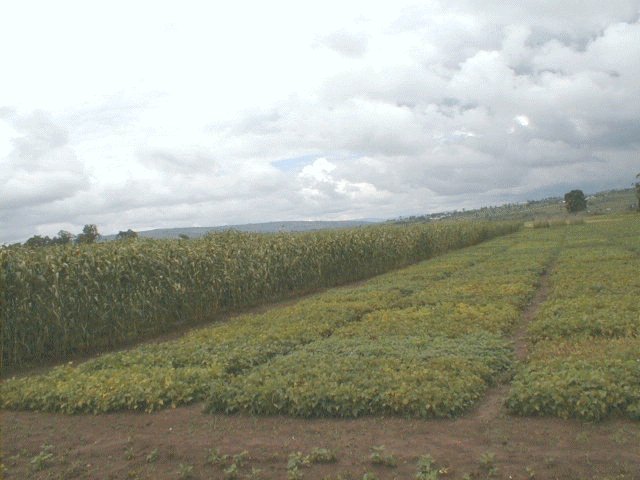 |
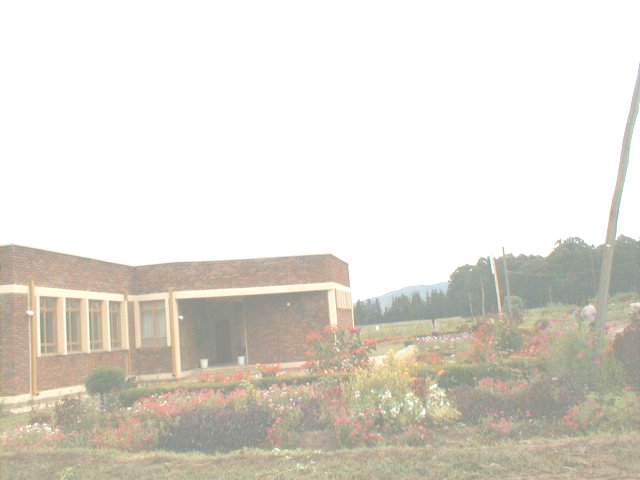 |
ALARC is involved in participatory extension activities, which mainly focus on popularizing farmers’ preferred crop varieties. The crops of interest so far are highland maize, all types of sorghum, and bread, durum wheat and haricot bean. The approach followed involves (i) identification of farmers varietal matching characteristics, (ii) search for the varieties which conform with farmers varietal preferences, (iii) participatory varietal selection (PVE) on farmers fields, and (iv) establishment of farmers managed seed systems with farmers’ preferred varieties.
Structures for Research Program
Structures for Crop Improvement Program
|
 |
||||||||||||||||||||||||||||||||||||
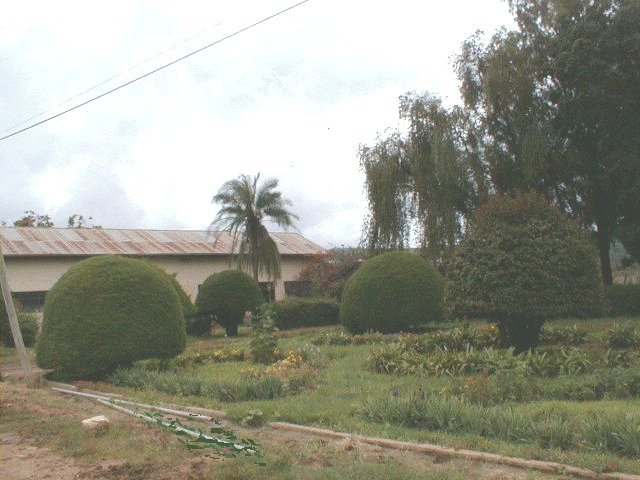 |
 |
Structures
for Animal Improvement Program
|
|||||||||||||||||||
 |
||||||||||||||||||||